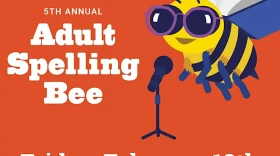When President Obama's "My Brother's Keeper" initiative was first announced in February, it emphasized its goal to improve opportunities for young men of color.
In the months that followed, the program's task force has met with public and private organizations that work with these young men to gage recommendations, and last month put out a call for mentors in communities across the country.
Yet as it's made incremental progress, the initiative has also come under fire. Last week, senior Obama aide Valerie Jarrett responded to criticism that the program excludes young women of color.
Now two economists are saying "My Brother's Keeper" focuses too much on the behaviors of young men and is essentially blaming the victims, rather than addressing the real structural causes of racial inequality.
“It seems like all of the ideas that are aimed addressing racial inequality aren’t aimed at addressing structural things like discrimination but rather attitudes, norms, and behaviors amongst blacks themselves or other subaltern populations themselves,” says Dr. Darrick Hamilton.
Dr. Hamilton is an associate professor at Milano-The New School of International Affairs and a research fellow at the Schwartz Center for Economic Policy Analysis. And, Dr. William Darity is a professor of public policy studies, African American studies and economics at Duke University.
The pair co-authored the report "Beyond Broke: Why Closing the Racial Wealth Gap is a Priority for National Economic Security," published by the Closing the Racial Wealth Gap Initiative. They also will publish an article entitled "From a Tangle of Pathology to a Race-Fair America" in the Summer 2014 issue of Dissent magazine.
They joined contributor David Pate, who is an associate professor at the Helen Bader School of Social Welfare at UWM, in the studio for the latest installment of "Real Talk."





